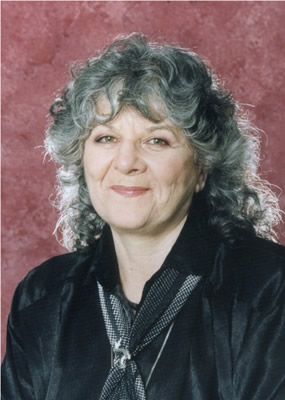
Debra Wallace - Pauline
Chiu - Princess Chulabhorn - Ada Yonath |
|
Ada Yonath is an Israeli crystallographer best known for her pioneering work on the structure of ribosome. Born in Jerusalem, she is the director of the Helen and Milton A. Kimmelman Center for Biomolecular Structure and Assembly of the Weizmann Institute. She focuses on the mechanisms underlying protein biosynthesis, by ribosomal crystallography, a research line she pioneered over twenty years ago despite considerable skepticism of the international scientific community. She determined the complete high-resolution structures of both ribosomal subunits, and discovered within the otherwise asymmetric ribosome the universal symmetrical region that provides the framework and navigates the process of polypeptide polymerization. Consequently she showed that the ribosome is a ribozyme that places its substrates stereochemically suitable for peptide bond formation and for substrate-mediated catalysis. Two decades ago she visualized the path taken by the nascent proteins, namely the ribosomal tunnel, and recently revealed the dynamic elements enabling it’s involvement in elongation arrest, gating, intra-cellular regulation and nascent chain trafficking into their folding space. Additionally, Prof. Yonath elucidated the modes of action of over twenty different antibiotics targeting the ribosome, illuminated mechanisms of drug resistance and synergism, deciphered the structural basis for antibiotic selectivity and showed how it plays a key role in clinical usefulness and therapeutic effectiveness, thus paving the way for structure-based drug design. For enabling ribosomal crystallography Prof. Yonath introduced a novel technique, cryo bio-crystallography, which became routine in structural biology and allowed intricate projects otherwise considered formidable. Prof. Yonath earned her Ph.D. at the Weizmann Institute of Science, and undertook postdoctoral studies at MIT and Carnegie Mellon University. In 1970, she established what was for nearly a decade the only protein crystallography laboratory in Israel. After returning from a sabbatical year at the University of Chicago, during 1986 - 2004 she headed a Max-Planck Research Unit in Hamburg, Germany, in parallel to her research activities at the Weizmann Institute. (source Wikipedia)
|

